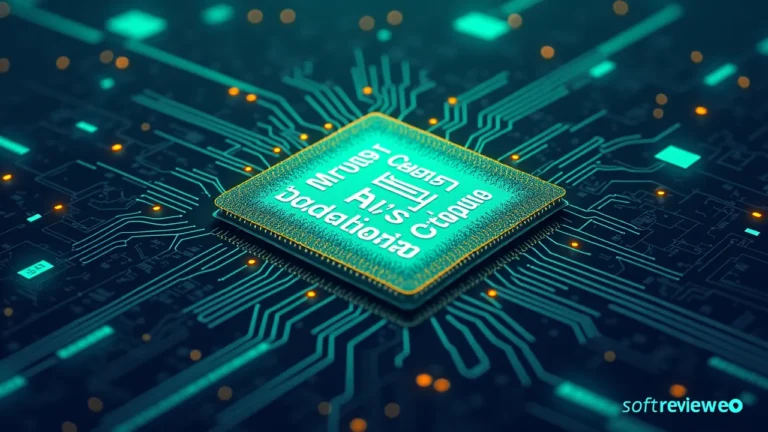🖥️ AlphaChip: AI-Driven Chip Design Revolution
Transforming the microchip design process with artificial intelligence
🚀 AI-Driven Chip Design
AlphaChip uses AI to design and optimize microchip layouts, achieving superhuman results in hours instead of months.
🌐 Broad Applications
Used in designing Google’s TPUs, Axion processors, and applications extending to data centers and mobile devices.
🧠 Reinforcement Learning Approach
Treats chip design as a puzzle, placing components one at a time and learning from each step, becoming faster and more accurate with experience.
🏢 Industry Impact
Adopted by companies like MediaTek for developing smartphone chips, demonstrating its impact across the chip design industry.
📈 Performance Improvements
6th-generation TPU, Trillium, delivers nearly 5x peak performance, double bandwidth, and 67% improvement in energy efficiency.
🔮 Future Innovations
Paves the way for new AI-powered technologies, envisioning AI-designed chips powering the next generation of AI models.
In a groundbreaking development, Google DeepMind has unveiled AlphaChip, an artificial intelligence system that is transforming the landscape of computer chip design. This innovative approach, which uses reinforcement learning to optimize chip layouts, has already been implemented in the production of multiple generations of Google's Tensor Processing Units (TPUs) and is now being adopted by other major players in the semiconductor industry.
What is AlphaChip?
AlphaChip is an AI-powered system developed by Google DeepMind to automate and optimize the process of chip floorplanning. Chip floorplanning involves arranging the various components of a microchip on a silicon wafer, a task that has traditionally been both time-consuming and challenging due to the complex constraints involved .
The system approaches chip design as a strategic game, similar to how DeepMind's AlphaGo mastered the game of Go. AlphaChip places one circuit component at a time on a blank grid, learning from each placement and improving its strategy over time .
How Does AlphaChip Work?

AlphaChip employs a novel "edge-based" graph neural network that allows it to learn how chip components interact. This enables the AI to generalize its learnings across different chip designs, continuously improving its performance .
The process involves two key steps:
Pre-training: AlphaChip practices on a diverse range of chip blocks from previous generations, including on-chip and inter-chip network blocks, memory controllers, and data transport buffers .
Generation: The pre-trained model is then used to create high-quality layouts for current TPU blocks .
This approach allows AlphaChip to become more efficient and effective with each new chip design task, mirroring the way human experts improve their skills over time.
AlphaChip's Impact on Google's TPUs
Google has successfully used AlphaChip to design three generations of its Tensor Processing Units, including the latest 6th generation TPU named Trillium . With each new generation, AlphaChip has demonstrated improved performance:
- Faster Design: AlphaChip can generate chip layouts in hours, compared to weeks or months of human effort .
- Better Performance: The AI-designed layouts have shown improvements in key metrics such as wirelength, which directly impacts chip speed and power consumption .
- Increased Scope: AlphaChip has been able to design a larger portion of the overall floorplan with each new TPU generation .
Beyond Google: Industry Adoption
The impact of AlphaChip extends beyond Google's own chip designs. Other companies in the semiconductor industry have begun adopting this AI-driven approach:
- MediaTek: The company has used AlphaChip to improve the size, power, and performance of its own chips, which are used in devices like Samsung smartphones .
- Broader Applications: AlphaChip has also been used to generate layouts for other types of chips, including Arm-based CPUs like Google's Axion processor .
The Future of AI in Chip Design
Google DeepMind envisions a future where AI methods automate the entire chip design process. This could lead to:
- Dramatically accelerated design cycles
- New frontiers in chip performance
- End-to-end co-optimization of hardware, software, and machine learning models
As AI continues to improve chip design, we may see a virtuous cycle where better chips enable more advanced AI, which in turn leads to even better chip designs.
Challenges and Controversies
Despite its impressive achievements, AlphaChip has not been without controversy:
- Reproducibility Concerns: Some researchers have raised questions about the reproducibility of Google's results, highlighting the need for more transparent benchmarking in AI-driven chip design .
- Comparison to Traditional Methods: There has been debate about how AlphaChip's performance truly compares to state-of-the-art traditional chip design methods .
- Resource Requirements: Critics have pointed out that the computational resources required by AlphaChip may be significantly higher than those needed by traditional methods .
How is Google’s AlphaChip Contributing to the 25% of New Code Generated by AI?
Google’s AlphaChip is revolutionizing code generation by harnessing machine learning to optimize algorithms, making it easier for developers to create software efficiently. This innovation exemplifies how artificial intelligence reshaping software development landscape, leading to an impressive 25% of new code being generated by AI-driven tools, transforming the future of coding.
Conclusion
Google's AlphaChip represents a significant leap forward in the application of AI to real-world engineering problems. By automating and optimizing the complex task of chip floorplanning, it has the potential to accelerate the pace of innovation in semiconductor technology.
As AlphaChip continues to evolve and find broader adoption in the industry, we may be entering a new era of chip design where AI and human expertise work hand in hand to create faster, more efficient, and more powerful computing devices. The future of AI-designed chips looks promising, with potential impacts reaching far beyond the realm of computing into various aspects of our technology-driven world.
Google’s AlphaChip: Revolutionizing Microchip Design
This chart illustrates key performance improvements and adoption metrics of Google’s AlphaChip AI system for microchip design.







